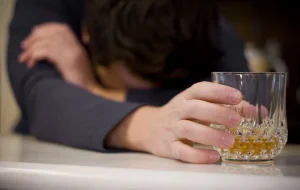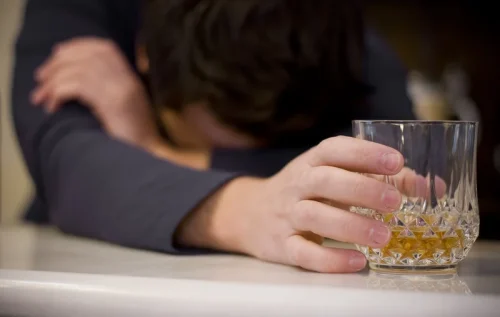
When you drink alcohol, it’s absorbed through the stomach and small intestine and moves into your bloodstream. This article discusses the science behind why alcohol makes you sleepy, how to minimize drowsiness while drinking, and the broader effects alcohol has on your sleep and overall health. If you fancy a glass of wine with dinner or a nightcap before bed, you might want to cap the Chiante and put the Negroni down — research shows that even low alcohol intake can stymie your sleep. Understanding how alcohol affects circadian rhythms and REM sleep can help us comprehend why moderating or reducing alcohol can lead to better sleep, and improved health and wellbeing.

Causes Night Awakenings and Frequent Urination

Based on data from roughly 160,000 Sleep Foundation profiles, nearly 90% of respondents who regularly consume alcohol in the evening have reported at least one sleep-related problem. You may not be able to sleep after drinking alcohol because it can be a stimulant in some cases, and it can fragment your sleep, reduce melatonin, and cause or worsen anxiety and sleep disorders. You may have also developed a tolerance to the sedative effects of alcohol and other factors, like poor sleep hygiene, could be keeping you awake. Alcohol can trigger parasomnias, involuntary sleep behaviors that contribute to poor sleep quality, such as sleep talking and sleepwalking. By interfering with your body’s normal circadian rhythm and sleep cycles, alcohol increases the likelihood of disruptive sleep behaviors that pose a safety risk.
Health Categories to Explore

Sleep debt is compared to your sleep need, which is the genetically determined amount of sleep you need. Lifehacker has been a go-to source of tech help and life advice since 2005. Our mission is to offer reliable tech help and credible, practical, science-based life advice to help you live better. In the ER, doctors will give patients with acute alcohol toxicity a mixture of these via IV in what’s known as a “banana bag,” which helps correct the chemical imbalance in the body. You can prepare your own mixture of “banana bag” supplements (in smaller doses obviously) to do the same thing.
- Taking any other substances that have a sedative effect should be avoided unless a doctor prescribes them.
- Insomnia is one of the largest setback triggers for people in recovery from an alcohol use disorder.
- Around 20% of adult Americans use alcohol – known to be a powerful sleep inducer – to help them fall asleep.
Sleep Apnea
It’s true, sleep may happen more quickly after consuming a drink or two. Alcohol often does reduce sleep onset latency—the time it takes to fall asleep. Depending on how much alcohol is consumed, however, what seems like falling asleep may be something closer to passing out. And we quickly build a tolerance for the sedative effects of alcohol, which means you may need to drink more to have the same initial sleep-inducing effects. Alcohol can cause insomniabecause of the damagethat alcohol can do to your sleep cycles and circadian rhythm. This can lead to additional effects like daytime sleepiness and grogginess.
It’s harder to wake the person as they become unresponsive to outside stimuli. This stage is what is referred to as “restorative sleep” – when the body works to repair itself and boost functions. Finally, put your phone on silent or into airplane mode so notifications don’t wake you. However, if you’re reading this, you probably need to get as much sleep as you can, and probably can’t sleep in. Finally, cutting yourself off early is the smartest thing you can do if you know you need to sleep.

While you’re out and drinking
- Alcohol has been linked to reduced rapid eye movement (REM) sleep.
- You may have also developed a tolerance to the sedative effects of alcohol and other factors, like poor sleep hygiene, could be keeping you awake.
- Have you ever woken yourself up snoring after an evening cocktail or two?
- If you drink, practice moderation and prioritize your health with strategies like staying hydrated and maintaining good sleep hygiene to minimize the negative effects on your sleep.
- If you want to avoid any ill-side effects of alcohol—at least as it relates to your sleep—cut yourself off around three hours before bedtime.
- By interfering with your body’s normal circadian rhythm and sleep cycles, alcohol increases the likelihood of disruptive sleep behaviors that pose a safety risk.
People’s tolerance to alcohol as a sleep aid rapidly increases, leading to insomnia and alcohol dependence. Research from 2018 corroborates this, suggesting that people experience a lower duration and quality of REM after consuming alcohol. Older research suggests the effects on REM sleep appear to be dose related.
Insomnia is one of the largest setback triggers for people in recovery from an alcohol use disorder. Establishing good sleeping habits, also known assleep does alcohol help you sleep hygiene, is an essential first step in good sleep. Ideally, you should wake up and go to bed at the same time each day.